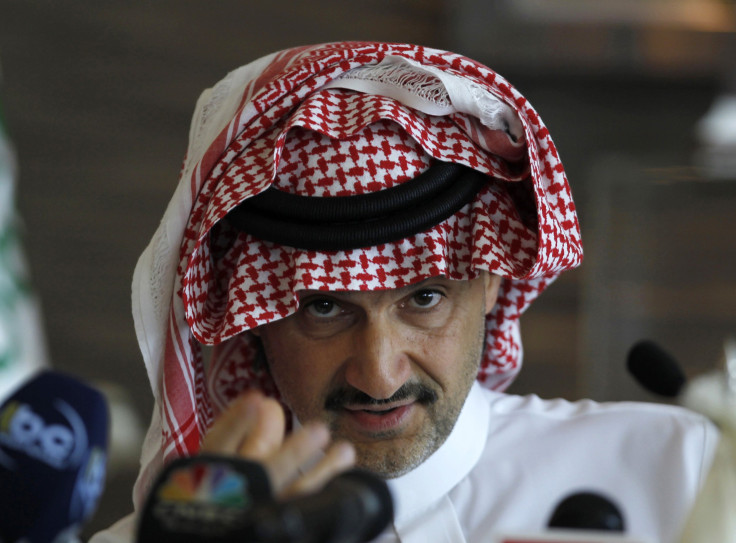Saudi Prince Alwaleed Bin Talal Complains Forbes Undervalued His Wealth

Oh, the rich. They are not like you and I. For one, they don't panic when unemployed. For two, when a reputable journalistic enterprise devalues their worth by several billion, they have a large platform from which to complain.
Saudi Arabia's Prince Alwaleed Bin Talal recently expressed very public anger at the most recent Forbes rankings of the world’s billionaires, which was released on Monday. The magazine says the real estate and finance mogul is worth $20 billion, giving him an overall ranking of 26th out of 1,426 on the list.
The competing Bloomberg Billionaires List, also released Monday, listed the prince at number 16, and his wealth was estimated at $28.7 billion.
Alwaleed says his worth is closer to $29.6 billion, which, if true, would give him a ranking above Christy Walton, a Wal-Mart heiress, and Bernard Arnault, CEO of Louis Vuitton and the richest man in France. Arnault and Walton are listed at numbers 10 and 11 respectively on the Forbes list.
Alwaleed announced in a letter to Forbes’s editor-in-chief, Steve Forbes, that he “would no longer cooperate with Forbes” due to this slight, and accused the magazine of “intentional biases”; Forbes had purposefully undervalued him, Al Waleed alleged, “to disadvantage Middle Eastern investors and institutions.” Kingdom Holding Co., the holding for Al Waleed’s investments, which include the biggest individual stake in Citigroup, added that it had “retained counsel,” and in a final snub, announcing it would continue to work with Bloomberg, AFP said.
In an article released on Tuesday detailing how it came to the valuation, Forbes said that the prince “systematically exaggerates his net worth by several billion dollars,” and that the Forbes rankings are near and dear to his ego. “The value that the prince puts on his holdings at times feels like an alternate reality, including his publicly traded Kingdom Holding, which rises and falls based on factors that, coincidentally, seem more tied to the Forbes billionaires list than fundamentals,” the magazine wrote.
“'That list is how he wants the world to judge his success or his stature," says one of the prince’s former lieutenants, who, like almost all his ex-colleagues, spoke on the condition of anonymity for fear of reprisal from the Arab world’s richest man. "It’s a very big thing for him. Various thresholds - a top 20 or top 10 position - are stated goals in the palace, these ex-employees say.”
Part of the discrepancy, the Guardian says, is that Forbes refuses to take into account the shares Alwaleed owns in the Saudi Arabian stock market, even while taking into account shares on other markets, like the Mexican stock exchange.
Kingdom Holding also rejected an assertion in the Forbes article that “stock manipulation is the national sport in Saudi Arabia because there are no casinos.”
In February, Bloomberg reported the prince had sold his Airbus A380 plane, which would have been the biggest private jet ever, before it was even delivered from the factory. The news agency reported he would be reinvesting the proceeds from the sale in various Middle East ventures. Bloomberg did not say how much Alwaleed fetched for the plane, or to whom he sold it, but did note that at the time he had more than $1.3 billion invested in public and private equities in the Middle East. The stock price of an Airbus A380, the world's biggest passenger airplane, is $390 million. Alwaleed will keep flying his Boeing 747.
© Copyright IBTimes 2025. All rights reserved.






















